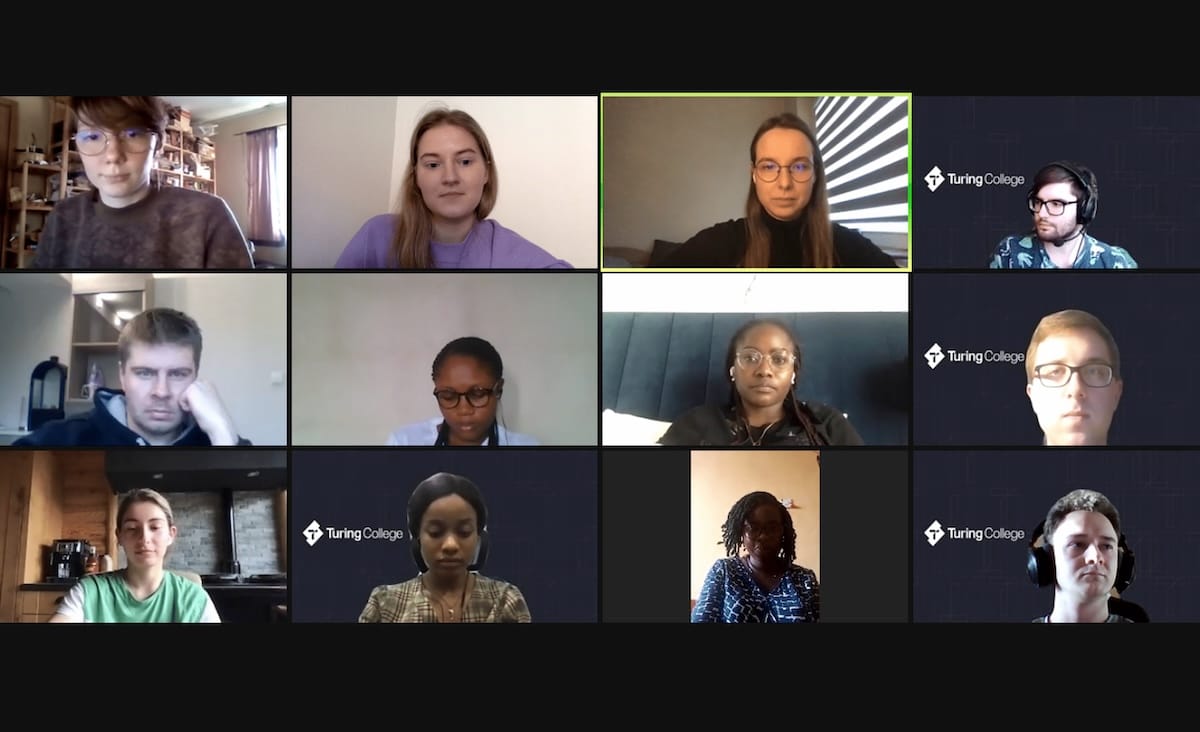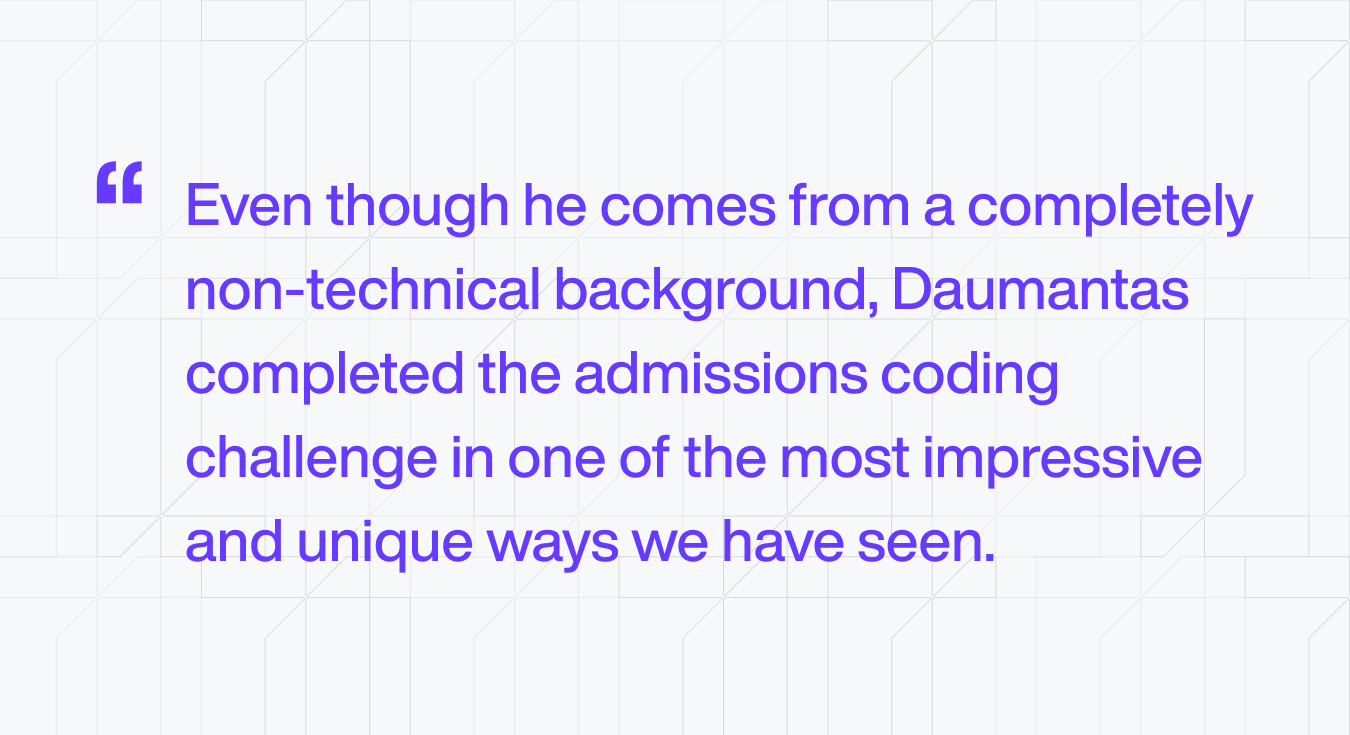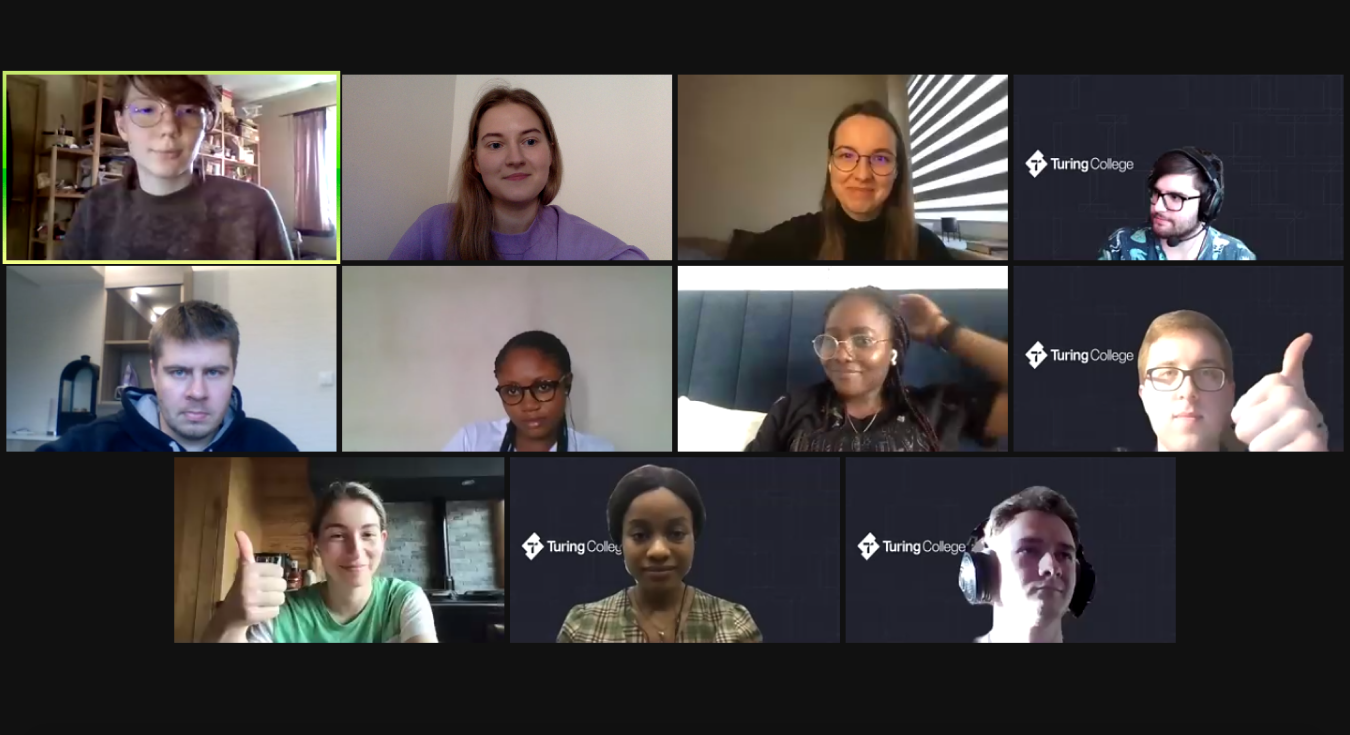What Education and Experience Do You Need to Become a Data Scientist?

If you're thinking about moving into the field of data science, perhaps you have some of these questions on your mind?
- Can I go into data science with no prior experience?
- What education do you need to become a data scientist?
- Is it hard to get a career as a data analyst or a machine learning engineer?
Well, we're here to help. In this article we're going to break down who our data science learners typically are, and what it is that they're looking for from their studies with us. This can help you to understand if taking a course in data science that will lead on to a job is the right decision for you.
Of course, we should point out that every Turing College learner is unique. In fact, that's one of the main advantages we have to offer. Our flexible learning platform means people can progress at different speeds, and focus on different specialisations.
But we thought we would share with you some insights on our learners so far that might give you an overall sense of what levels of education and experience data science students typically have. We are on our 3rd batch of learners already (time flies when you're having fun!) And with every new batch, we are getting an even clearer idea of what it is that people love about Turing College, and which types of people we are a great fit for. Let's take a look.
What Work Experience Do Turing College Learners Have?
Most of our learners join us having had some experience of work already. Whether that experience is in coding, however, is another matter.
Prior Work Experience
Only around 1 in 5 of our learners have joined us fresh out of university. Even then, they usually have some experience of work already.
The majority are switching from one job to another. Most of these learners were planning to start a new career in data science, with a smaller proportion already working in data science and looking to upskill. For example, in our first 2 batches of learners, 67.7% said their aim was to start a career in data science.
The fact that most of our learners have already had a job when they join us doesn't mean you need experience of work to study data science. But it does show that most people choosing to study with us are at the stage where they want to redirect their careers.

Knowledge of Coding
Surprisingly few Turing College learners come directly from coding roles. For example, in our 3rd batch of learners, less than half of those already with a job were coming from coding roles. The percentage was even lower in our earlier cohorts.
This doesn't mean that most learners have no knowledge of coding at all. Almost all of our applicants have an interest in coding and at least know the basics before applying – but our redesigned Data Science program no longer requires coding experience.
But it does mean that you don't need any formal experience in coding. For example, one of our first learners, Daumantas, studied Political Science and Philosophy before switching to data science. He knew some coding, but had not used it in education or work, but this didn't prevent him from successfully joining our program. In fact, the admissions team loved his solution to the coding challenge:
“Even though he comes from a completely non-technical background, Daumantas completed the admissions coding challenge in one of the most impressive and unique ways we have seen.”
You can read Daumantas' full story, and meet some other Turing College learners, in this article.
The bottom line is that many learners join us with only a basic knowledge of coding fundamentals. And while this naturally gives them some extra learning to do (coding is integral to data science after all), we provide extensive pre-course materials so they can be up to speed when the course begins.

How Old Are Turing College Learners?
Age doesn't tell us that much about a learner's experience (and it tells us nothing at all about their abilities or ambitions).
But it can give a good idea of what stage in their career most of our learners are at. And the data shows they are mainly graduates who are already in work (perhaps their first job). That's because, in all 3 of our batches so far, the largest age group has been 23 to 28 year olds.
That is followed by 18 to 23 year olds, and then 28 to 33 year olds.
So, it's a relatively young community, but at the same time the age spread is wide enough (18 to 33) that learners at any stage of their career will feel at home. If you're ready for data science, your age is just a number.
What are They Hoping to Learn From Their Data Science Studies?
Data science is a very broad field, and our learners have a range of different goals when it comes to what they will learn here at Turing College. Some are not even aiming to become data scientists, but want to use their newly acquired data science skills to improve processes and decision-making in another field entirely.
In short, our learners have a broad range of different priorities and learning goals. Here are 3 of the main ones they have mentioned to us:
- Machine learning: Many learners who join us with existing experience in coding are keen to develop their skills in machine learning, with the ultimate goal of becoming machine learning engineers. Want to learn about support vector machines or ensemble learning? Turing College is your best bet.
- Python: Whatever level of coding experience they already have, most of our learners want to learn more about Python. Which is pretty unsurprising, given this is the language of data science.
- Soft skills: Learners want to learn soft skills along with hard (tech) skills. Soft skills valuable to data scientists include effective communication, teamwork and task management.
All 3 of these key areas are covered in depth over the Turing College Data Science course. And our focus on soft skills, including regular mentoring from experienced data scientists from tech companies, is one of the things that sets us apart from other educational institutions.
What Education and Experience Do You Need to Become a Data Scientist?
Ultimately, the data from our learning community shows that there are many paths to becoming a data scientist, and there is no set criteria for becoming a data science student. In terms of the common trends, here are some key takeaways:
- Most of our data science learners are already in work and are looking to switch careers or upskill,
- Less than 50% of our learners have formal experience working with coding (though they all have an interest in it),
- Our learners community ranges in age from 18 to 33, with most falling into the 23 to 28 bracket,
- The main technical subjects our learners want to develop in are Machine Learning and Python, and they are also keen to develop their soft skills.
Hopefully, this short article has given you some insights on the types of people who are choosing to become data scientists. If it has got you thinking about data science as a potential career, but you're still not sure it's for you, check out these 7 ways to tell if data science is for you.
